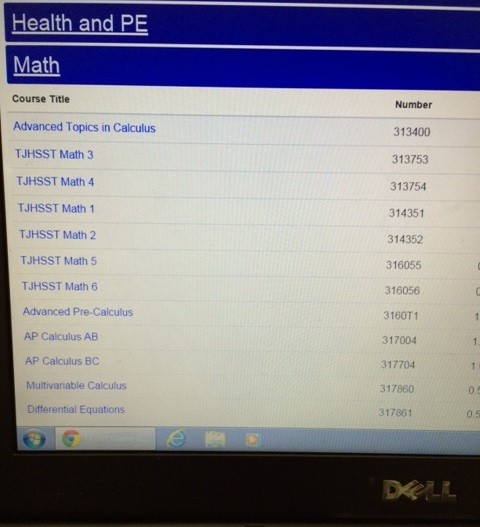Rethink the math system – again

June 16, 2015
Earlier in the year Mei Baek and I wrote an article in support of the alterations of the Jefferson math curriculum. However, as the year draws to a close I have now changed my opinion about the practicality of the new system.
Recently, students have been complaining about individual teachers, yet I feel that the real problem is with the system itself. The original thought process of the math department, that forcing freshmen to take a semester of Research Statistics in the hopes that it would save biology teachers time, has yet to prove itself. Nothing I learned in statistics actually helped me in Biology or aided me in assessing the results of my IBET project. Instead I find myself stuck in an unnecessarily confusing math system that allows, and even encourages, students to hold themselves back, yet provides little resources to help them succeed in the course they are currently enrolled in.
I would much rather have forgone the Research Statistics course and taken a full year of Algebra and Trigonometry. The year would have felt a lot more smooth and I would have felt that I was actually learning something. Instead the teachers are attempting to teach units in an unreasonable time span and then hand out tests that the majority of the students are grossly unprepared for. As a result I feel that in regards to math, the only thing I achieved was a bad grade.
I am almost sure that my grades, and understanding of the concepts taught, would be better if I was in a normal setting and teachers actually had time to go deeper into what they are teaching.
Then there is the case of students who would have taken Precalculus their freshmen year but opted to take World History and Geography I instead of Research Statistics over the summer. Now those students must choose between forgoing summer chemistry to take Math 5 over the summer, or delve even deeper into the new, and not so improved, math system and taking math 6 their sophomore.
I completely understand administration’s thinking and commend them for trying to make the Jefferson math curriculum more challenging and beneficial. On paper, the new system looks very good, hence, the article I wrote in support of it. However, now that I have actually struggled through Research Statistics and Math 3, I now understand the current system has more potential to harm than help. In short, if the administration and the math department want to see an improvement in the student body’s math grades, I would recommend reverting to the old – and vastly more popular – math system, because as the saying goes, “If it ain’t broke, don’t fix it.”





